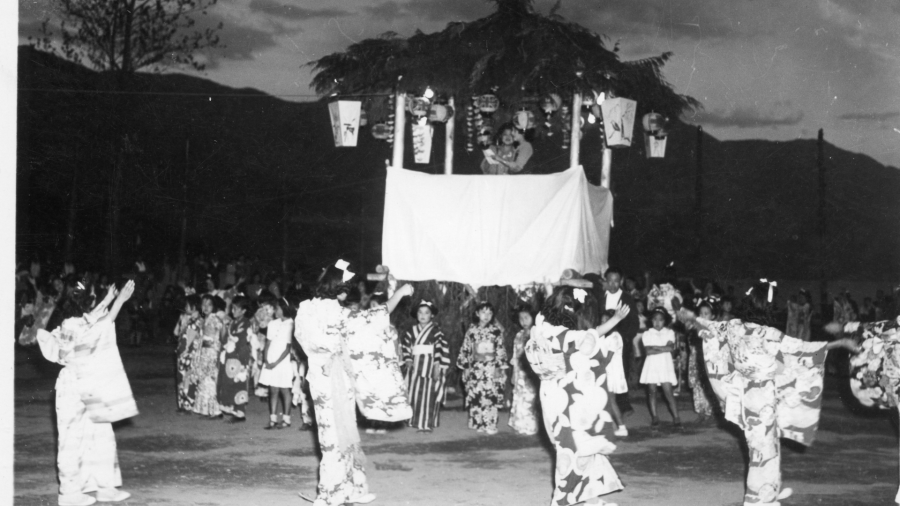Reports To: Executive Director
Employment Type: Full-Time
Location: Japanese Canadian Cultural Centre, 6 Sakura Way, Toronto, ON
Working Hours: Includes evenings and weekends as required
Position Overview
The Japanese Canadian Cultural Centre (JCCC) invites applications for the position of Program Director. This is a senior leadership role for a dynamic cultural producer who thrives at the intersection of art, heritage, and community life.
This position offers a rare balance of creative freedom and institutional stability. The Program Director will have the latitude to imagine and direct a broad and evolving suite of cultural programs from large-scale public festivals to intimate exhibitions, residencies, performances, workshops, and digital initiatives within the supportive infrastructure of a respected cultural organization.
Reporting to the Executive Director, the Program Director leads a talented team of coordinators and a program manager in designing and delivering programs that celebrate Japanese and Japanese Canadian culture while engaging the broader global and intercultural networks that shape contemporary life.
The ideal candidate brings both vision and discipline: an understanding that sustainable cultural work depends on artistic integrity, thoughtful stewardship of resources, and deep relationships with community and partners. They will be supported by an experienced Executive Director who is committed to mentorship, professional development, and creating the conditions for ambitious ideas to take root.
This is an opportunity to shape a multi-year artistic direction for a cultural centre entering an exciting phase of renewal: building new facilities, expanding hospitality services, launching touring programs, and preparing for major milestones in 2027 (150 year of Japanese migration to Canada) and the 2028 centenary of Canada–Japan diplomatic relations.
Context
The JCCC contains a range of spaces including a gallery, museum, 500-seat hall, dojos, classrooms, and more that combine to facilitate a living cultural ecosystem. Established in 1963, the JCCC is a hybrid institution where heritage, arts, and community converge. Today, the Centre attracts over 200,000 visitors annually through a diverse calendar of festivals, classes, exhibitions, and events.
Recent strategic planning has reimagined the JCCC’s operations around seasonal, participatory rhythms inspired by Japanese aesthetics and ritual practices. Each season—Haru, Natsu, Aki, Fuyu—is anchored by major matsuri and program clusters, creating an annual cycle that nurtures belonging and renewal. The Program Director plays a central role in curating and coordinating this rhythm across departments.
This is therefore more than a managerial role, but an artistic and civic one: an opportunity to work across cultural forms, languages, and generations.
Scope and Boundaries
- Programs: All fixed-term events and initiatives with a defined start and end date, including festivals, exhibitions, residencies, performances, workshops, and conferences.
-
Creative Mandate: Shape the artistic and thematic direction of the JCCC’s public programs, balancing tradition and experimentation, community and innovation.
-
Strategic Mandate: Align programming with institutional strategy and long-term growth, ensuring coherence across audience experience, heritage preservation, and storytelling.
Reporting & Team Structure
-
Reports directly to the Executive Director and is part of the senior leadership team.
-
Works closely with the Audience Experience, Story & Brand, and Heritage teams to ensure a unified institutional voice.
-
Supervises a team of six: a Program Manager, four Program Coordinators, and a Cultural Classes Coordinator.
-
Oversees project-based contractors, guest curators, artists, and volunteers.
-
Collaborates with the Engagement Lead on sponsorships, partnerships, and grants.
-
Engages with the Programming Committee and other Board subcommittees as required.
The Program Director is expected to foster a collaborative, respectful, and inspiring work environment, supporting emerging staff through coaching and constructive feedback while ensuring clarity of roles, timelines, and goals.
Key Responsibilities
1. Program Leadership and Vision
-
Conceive and deliver a compelling suite of programs that reflect the JCCC’s dual commitment to heritage and innovation.
-
Develop an annual and multi-year program plan that interweaves artistic excellence, public relevance, and financial sustainability.
-
Commission, curate, and collaborate with artists, scholars, and community leaders to create original programming that contributes to local, national, and international conversations.
-
Introduce new program formats such as digital residencies, participatory installations, and cross-disciplinary collaborations that extend JCCC’s reach beyond its walls.
-
Balance Japanese and Japanese Canadian content with a global sensibility that invites dialogue across cultures.
-
Ensure that programs are inclusive, accessible, and reflective of Toronto’s diverse audiences.
2. Financial Stewardship
-
Develop, manage, and monitor program budgets with accountability for profit and loss.
-
Establish financial targets for earned and contributed revenues.
-
Partner with the Engagement Lead to identify and pursue sponsorship, grant, and philanthropic opportunities related to programming.
-
Ensure cost-effective and environmentally responsible production practices.
-
Report regularly on financial performance and adjust plans as needed.
3. Partnerships and External Relations
-
Build and maintain strong relationships with artists, cultural institutions, universities, community organizations, and funders.
-
Represent JCCC in professional networks, conferences, and collaborative initiatives.
-
Co-develop touring, exchange, or co-presentation projects that position JCCC as a leader in Canada–Japan cultural relations.
-
Cultivate a presence within Toronto’s arts ecosystem as a trusted, generous, and imaginative collaborator.
4. Team Leadership and Mentorship
-
Supervise and develop a motivated programming team, ensuring clear communication, effective delegation, and shared accountability.
-
Provide mentorship and professional development opportunities for coordinators and specialists.
-
Promote a culture of curiosity, experimentation, and reflective practice.
-
Facilitate cross-departmental collaboration, integrating programming with marketing, audience experience, and heritage initiatives.
5. Evaluation and Learning
-
Establish success metrics encompassing artistic quality, audience engagement, financial outcomes, and community impact.
-
Implement systems for audience feedback, impact measurement, and continuous improvement.
-
Document and communicate program results through reports and presentations to the Executive Director and Board.
-
Contribute to strategic planning, policy development, and institutional learning cycles.
Qualifications and Attributes
-
7–10 years of progressively responsible experience in cultural programming, arts management, or related fields.
-
Proven capacity to manage large-scale projects with artistic, logistical, and financial complexity.
-
Demonstrated experience working collaboratively with diverse communities and artists.
-
Strong supervisory and coaching skills, with the ability to nurture both creativity and accountability.
-
Entrepreneurial mindset: comfortable navigating ambiguity, identifying opportunities, and turning ideas into action.
-
Deep understanding of audience development, cultural trends, and the evolving role of institutions in civic life.
-
Excellent written and verbal communication skills; confident in public presentations and relationship-building.
-
Knowledge of Japanese culture and Japanese Canadian heritage is a significant asset, though openness to learning and cross-cultural fluency are equally valued.
-
Ability to work evenings and weekends as part of the cultural calendar.
Compensation and Support
-
Annual Salary: $90,000
-
Benefits: Comprehensive benefits package in line with JCCC policies (health, vacation, professional development support, access to JCCC facilities and events).
-
Mentorship and Growth: Direct mentorship from the Executive Director, access to sector networks, and opportunities to represent JCCC nationally and internationally.
The Centre is committed to supporting the professional growth of its staff and to building a workplace that values care, creativity, and long-term sustainability.
About the Japanese Canadian Cultural Centre
The Japanese Canadian Cultural Centre is a charitable, non-profit organization dedicated to enriching lives globally through the celebration of Japanese culture and Japanese Canadian heritage.
For over sixty years, the JCCC has served as a bridge between cultures, generations, and disciplines. We honour the past while cultivating the future. It houses the Toronto Japanese Film Festival, the Moriyama Nikkei Heritage Centre, the Sedai Oral History Project, and a wide range of festivals, classes, exhibitions, and performances.
Today, the JCCC stands at the threshold of a new chapter that combines ritual, art, and hospitality to foster friendship through culture. The Program Director will play a pivotal role in realizing this transformation, ensuring that the Centre’s programming continues to inspire wonder, connection, and renewal in a rapidly changing world.
How to Apply
Please submit a cover letter outlining your interest and approach to cultural programming, along with a CV highlighting relevant experience to Executive Director, Jerrold McGrath at jerroldm@jccc.on.ca.
Applications will be reviewed until December 21, 2025 on a rolling basis until the position is filled.
We encourage applications from candidates of all backgrounds and life experiences, particularly those who can contribute to the diversity and vitality of our community.


